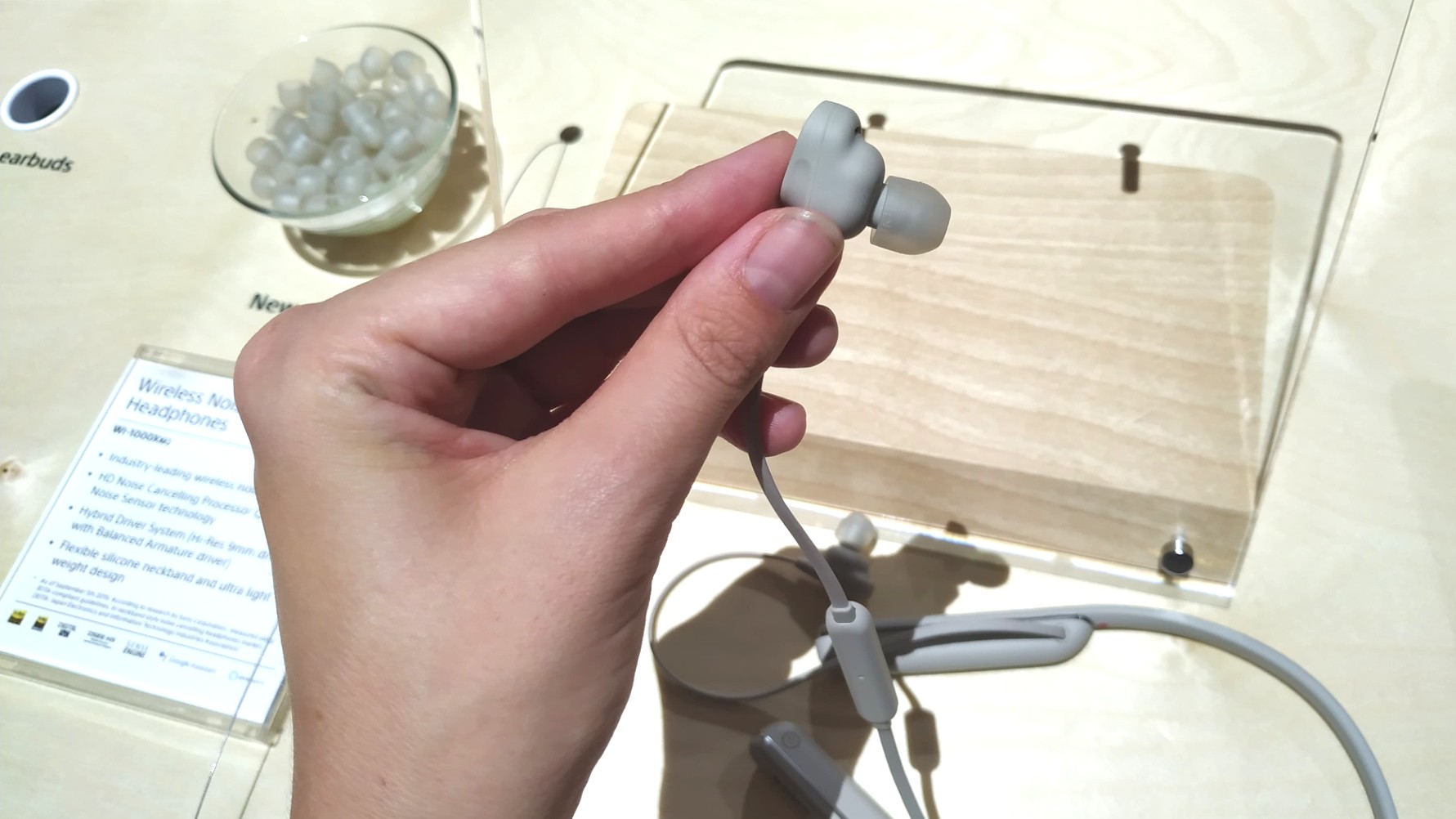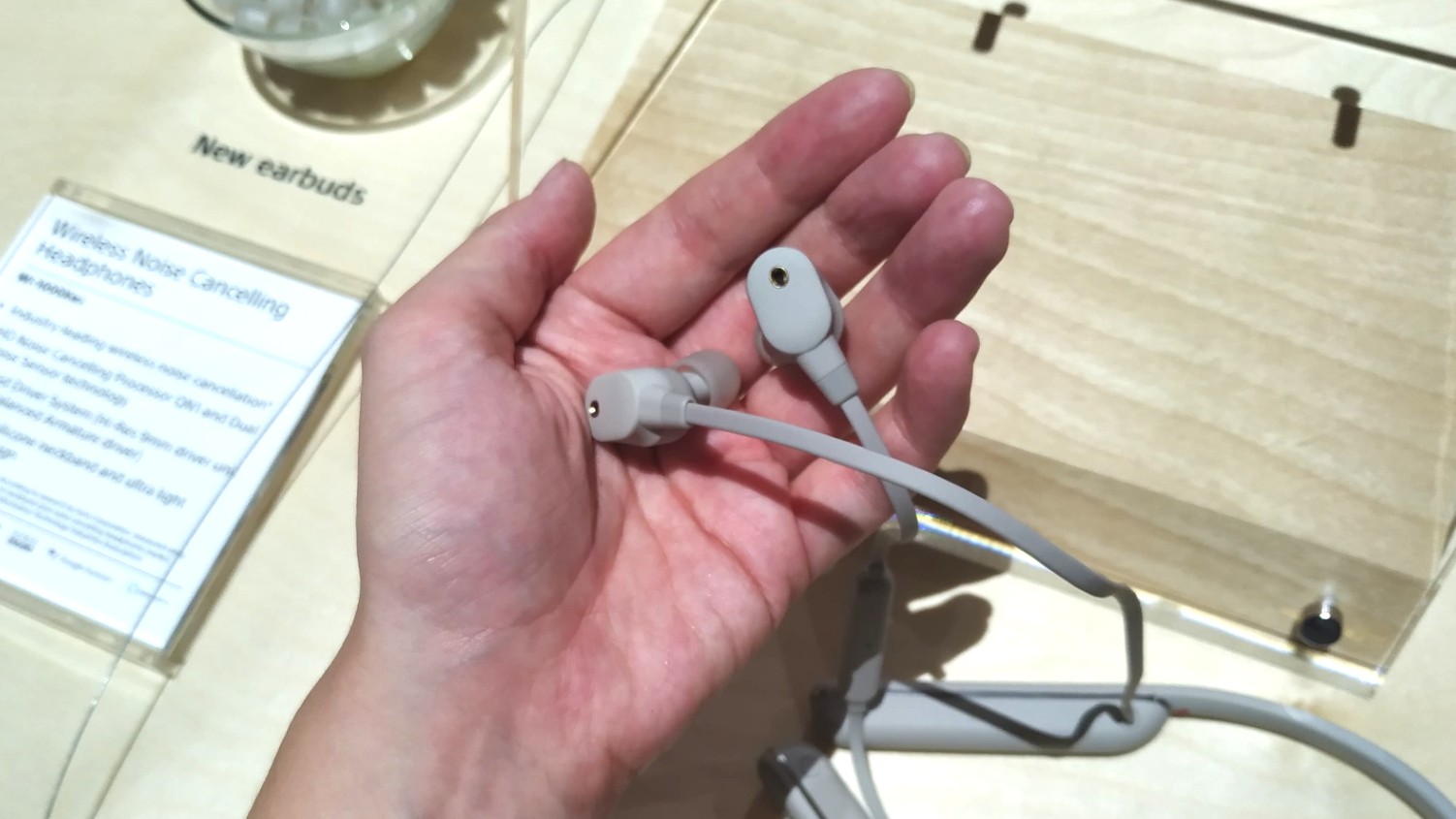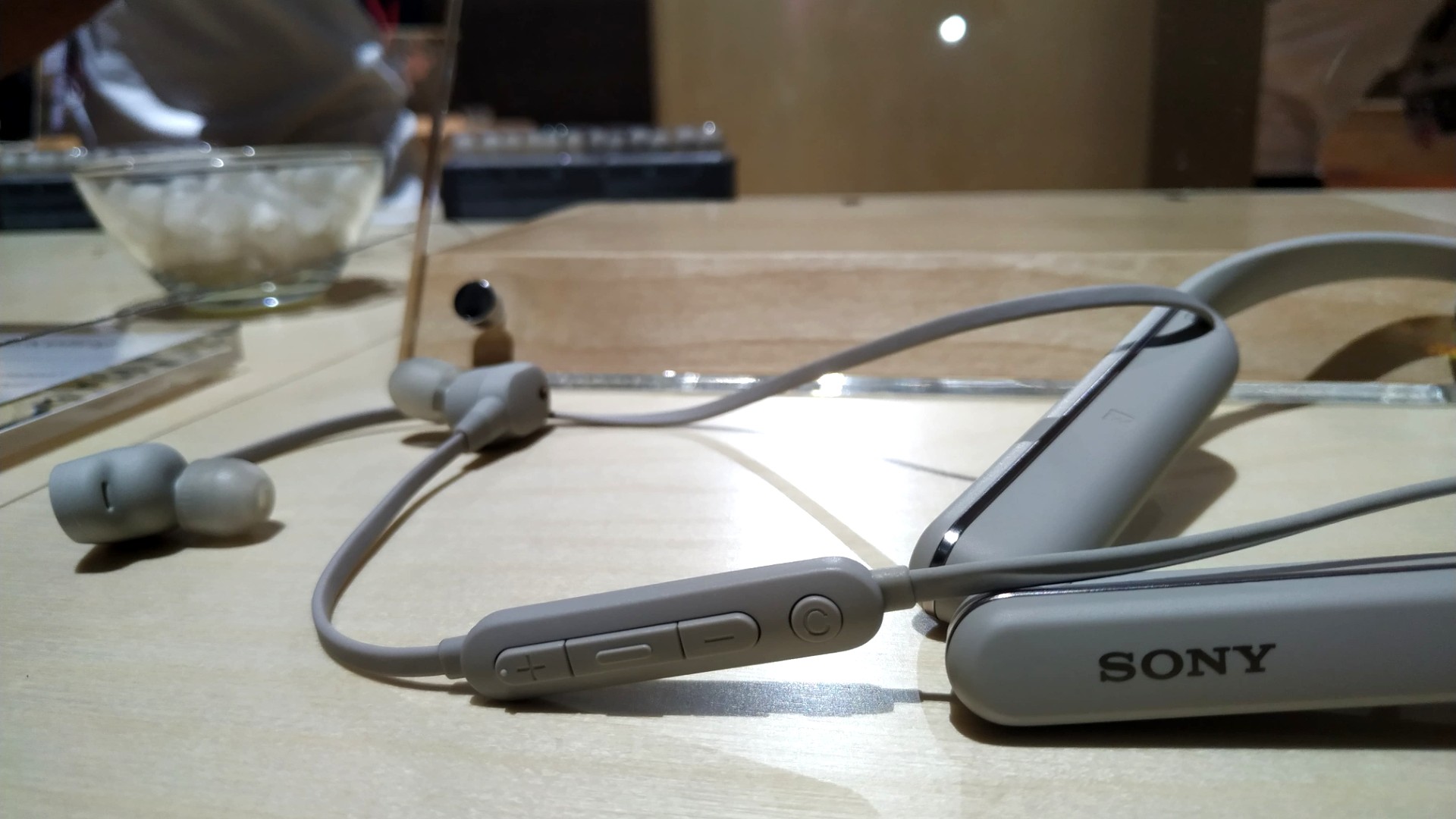Early Verdict
Sony's new noise-canceling neckband earphones look like another impressive addition to this line of big-hitting buds.
Pros
- +
Excellent noise cancelation
- +
Great sound quality
- +
Comfortable and light
Cons
- -
Design is a little boring
Why you can trust TechRadar
Sony is well known for its immensely successful noise-canceling headphones, and the brand is hoping for another win with its new WI-1000XM2 wireless neckband earbuds.
The new headphones build on the class-leading design of their predecessors, packing in an updated noise -cancelation processor – the same one that's used in our all-time favorite true wireless earbuds, the Sony WF-1000XM3s.
We took the new earphones for a brief spin at IFA 2019 in Berlin – read on for our initial thoughts.
Price and availability
The Sony WI-1000XM3 wireless headphones won't be available until January 2020, but we know they'll cost £300 in the UK, which works out at around $370 / AU$540.
We're still waiting on an official release date and global pricing, but they're certainly not cheap; in fact, they're more expensive than the class-leading Sony WF-1000XM3 true wireless earbuds, which cost around $230 / £220 / AU$400.
- Read about the ones that came before: Sony WI-1000X review
Design
There's one word that springs to mind when we look at these headphones: utilitarian. They're very beige, with a matte finish that does away with the shiny hardware you find on a lot of headphones these days.
One one side of the neckband are playback controls for your music, which we found worked well during our brief time testing the new wireless earbuds.
As for the earbuds themselves, Sony says the WI-1000XM2's angled earphone design ensures a tight seal against the ear canal, and means the earbuds sit "deeply within the ear".
They certainly felt very comfortable when we tested them, although you'll probably need to try a few different ear tip sizes before you find the perfect fit – and that fit is crucial in achieving the kind of seal needed for optimal noise cancelation.
Overall, they felt very light to wear, and we could see ourselves comfortably wearing them for long periods of time. The functional aesthetic may not appeal to all, but for those who like a dose of minimalism with their music, the design will probably appeal immensely.

Battery life and noise cancelation
The battery life of the WI-1000XM3 wireless headphones comes in at 10 hours, which isn't an improvement on their predecessors.
There's also quick charging, which can give you 80 minutes of playback from a 10-minute charge – handy for commuters who might only have a little bit of time to top up their buds.
Thanks to Sony's HD Noise Cancelling Processor QN1, which is also found in the industry-leading WH-1000XM3 over-ear headphones, these earbuds are better than ever at blocking out annoying environmental sounds.
When tested them in a bustling exhibition hall we were struck by just how much noise they managed to cancel out, leaving us in blissful solitude even amongst hundreds of chattering people.
Sony says these earphones are capable of cutting out even the most pervasive sounds, like the ambient noise within an aircraft cabin, making them ideal for anyone who travels a lot.

Sound performance
Despite only having a short time with the WI-1000XM2 earbuds, we were impressed by the sound quality they offer.
Listening to Blink 182's Blame It On My Youth, we experienced a wide, open soundstage, and fantastic separation between the frequencies. Wailing guitars cut through the mix, while distorted drums crunched below in tandem with cascading bass lines.
Meanwhile, the vocals were crystal clear, sitting at the very front of the mix and coming through with clarity and power.
This is thanks to a hybrid driver system, comprising a 9mm dynamic driver and a balanced armature driver, which create wide-range frequencies and defined, accurate playback.
As well as enabling the noise cancelation feature, that processor chip we mentioned earlier also features "32-bit audio signal processing, high quality digital to analogue conversion, and headphone amplifier", all built-in.
There's also a Digital Sound Enhancement Engine, which upscales your compressed MP3 files – and while that won't get you perfect lossless audio, Sony says it does bring you "closer" to the quality of High Resolution Audio.

Verdict
While we'll need to do more thorough tests before we can give a definitive verdict on the Sony WI-1000XM3 earbuds, we're impressed by what we've seen – and heard – so far.
Noise cancelation is excellent, and the sound quality on offer appears to be very good indeed – battery life could be better, though.
These earbuds feel comfortable, and their lightweight build makes them suitable for commuters, although not everyone will appreciate the minimalist design.
They're undeniably pricey too, but if they're as good as the Sony WF-1000XM3 true wireless earbuds they could be well worth the money.
- The best wireless headphones of 2019
Olivia was previously TechRadar's Senior Editor - Home Entertainment, covering everything from headphones to TVs. Based in London, she's a popular music graduate who worked in the music industry before finding her calling in journalism. She's previously been interviewed on BBC Radio 5 Live on the subject of multi-room audio, chaired panel discussions on diversity in music festival lineups, and her bylines include T3, Stereoboard, What to Watch, Top Ten Reviews, Creative Bloq, and Croco Magazine. Olivia now has a career in PR.
What is a hands on review?
Hands on reviews' are a journalist's first impressions of a piece of kit based on spending some time with it. It may be just a few moments, or a few hours. The important thing is we have been able to play with it ourselves and can give you some sense of what it's like to use, even if it's only an embryonic view. For more information, see TechRadar's Reviews Guarantee.

